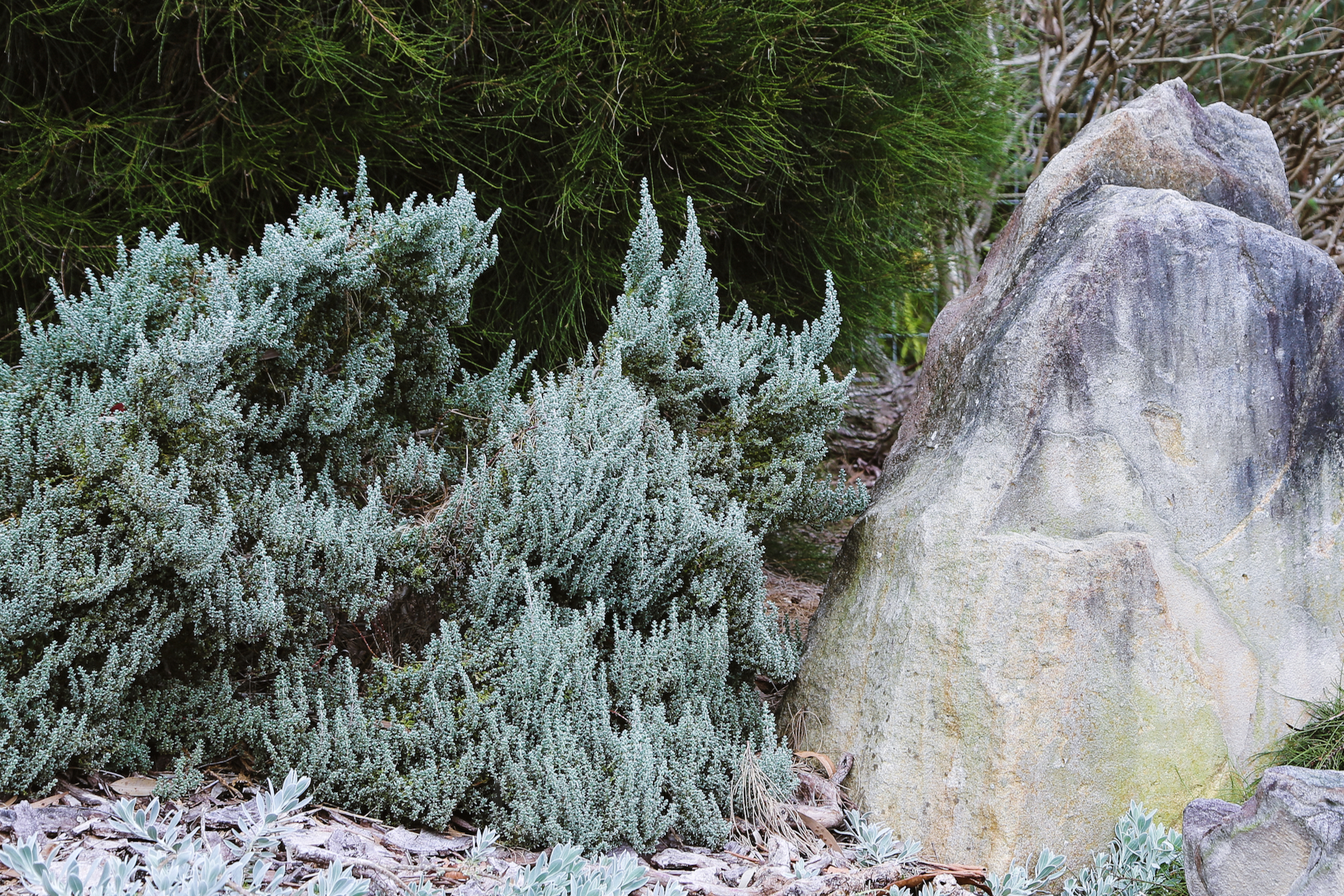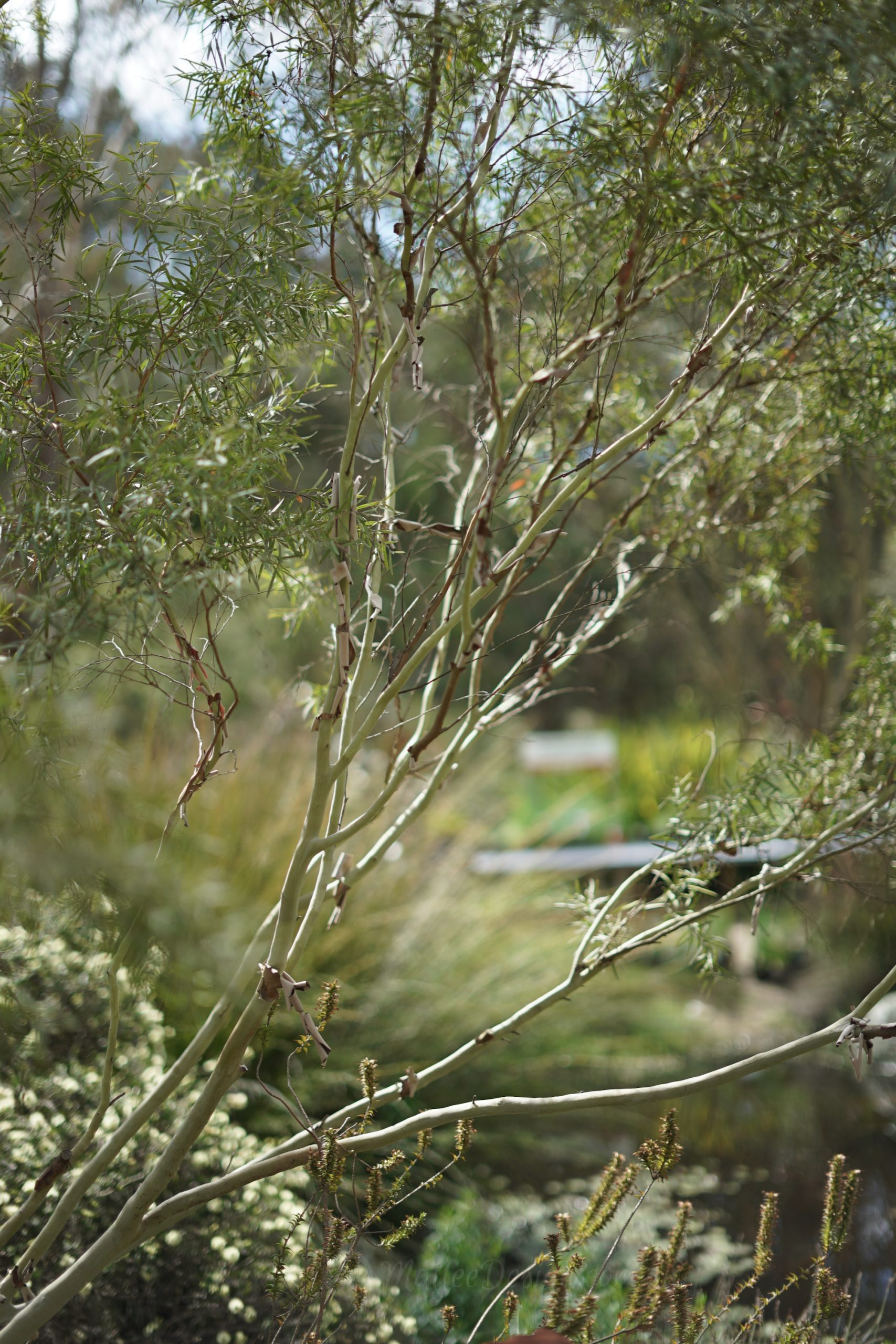-
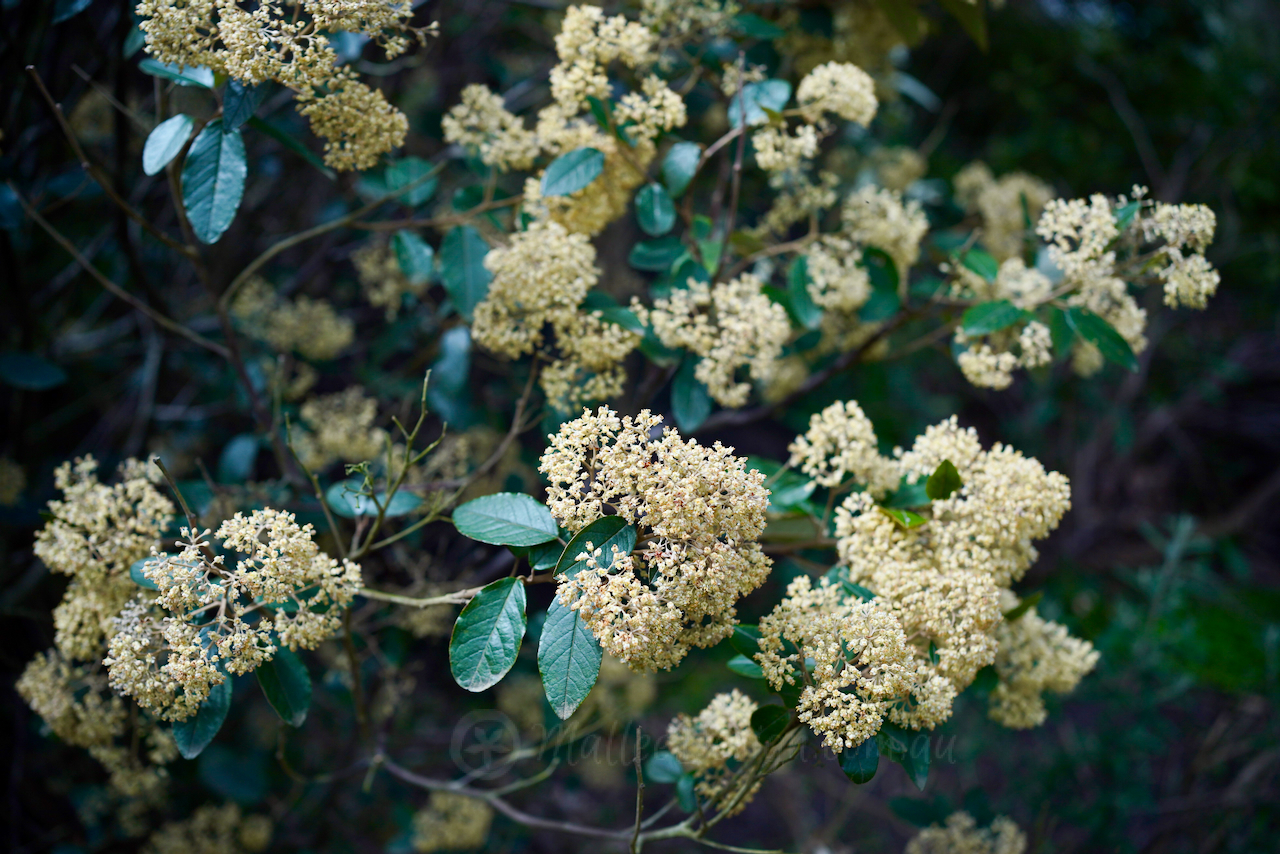
Pomaderris Elliptica: feature screening
After much sleuthing and a little bit of travel I have finally figured out which Pomaderris I saw flowering its head off in Cranbourne Botanical gardens last year. It only took a quick dash around Hobart Botanical Gardens, a few weeks ago, where I spotted it with a label! I am also guilty of planting…
-
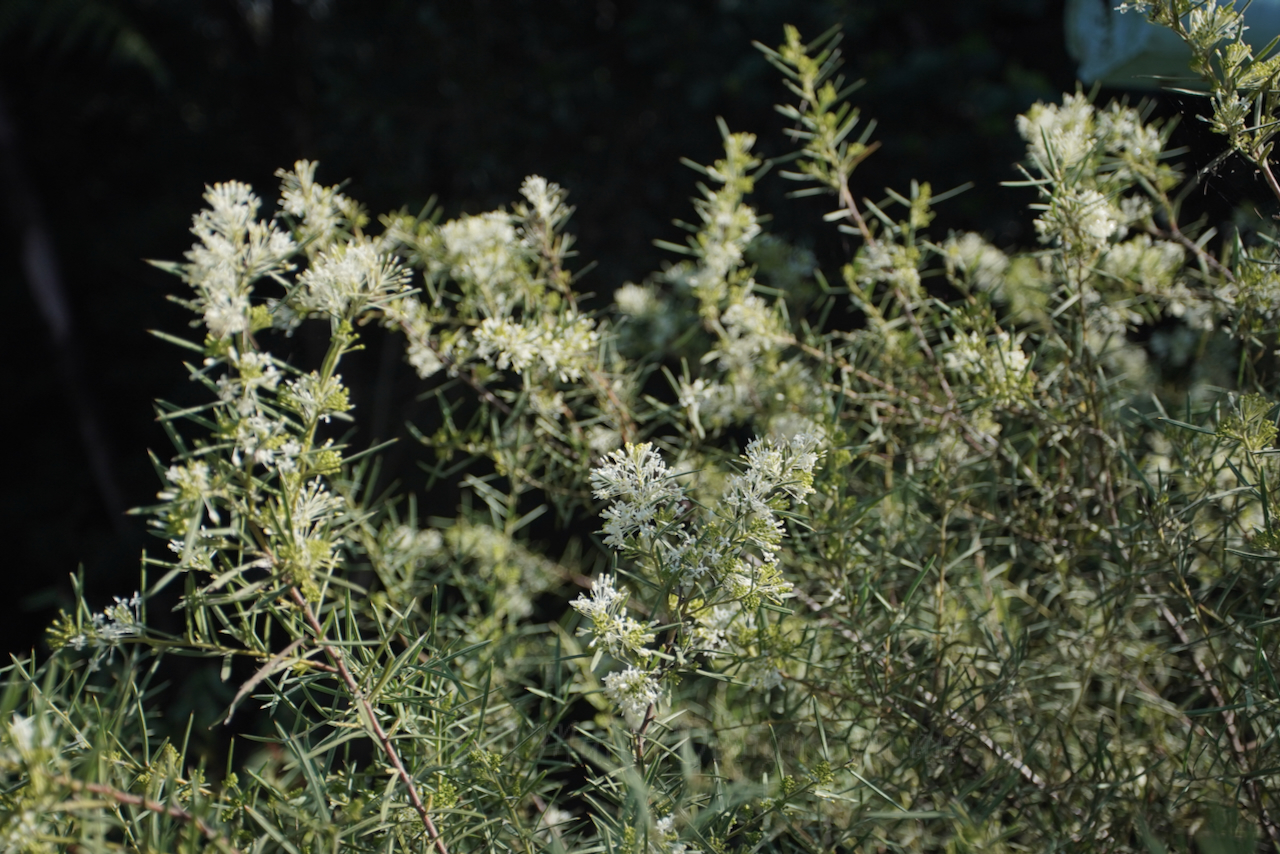
Grevillea anethifolia: Prefectly Prickly
This Grevillea is commonly known as the ‘Spiny Cream Spider Flower’ and is very aptly named. The leaves have needle like points and the whole plant makes a wonderful dense prickly shelter for small birds. These photos were taken in the Illawarra Grevillea Park, I also have a grafted Grevillea anethifolia growing happily in my…
-
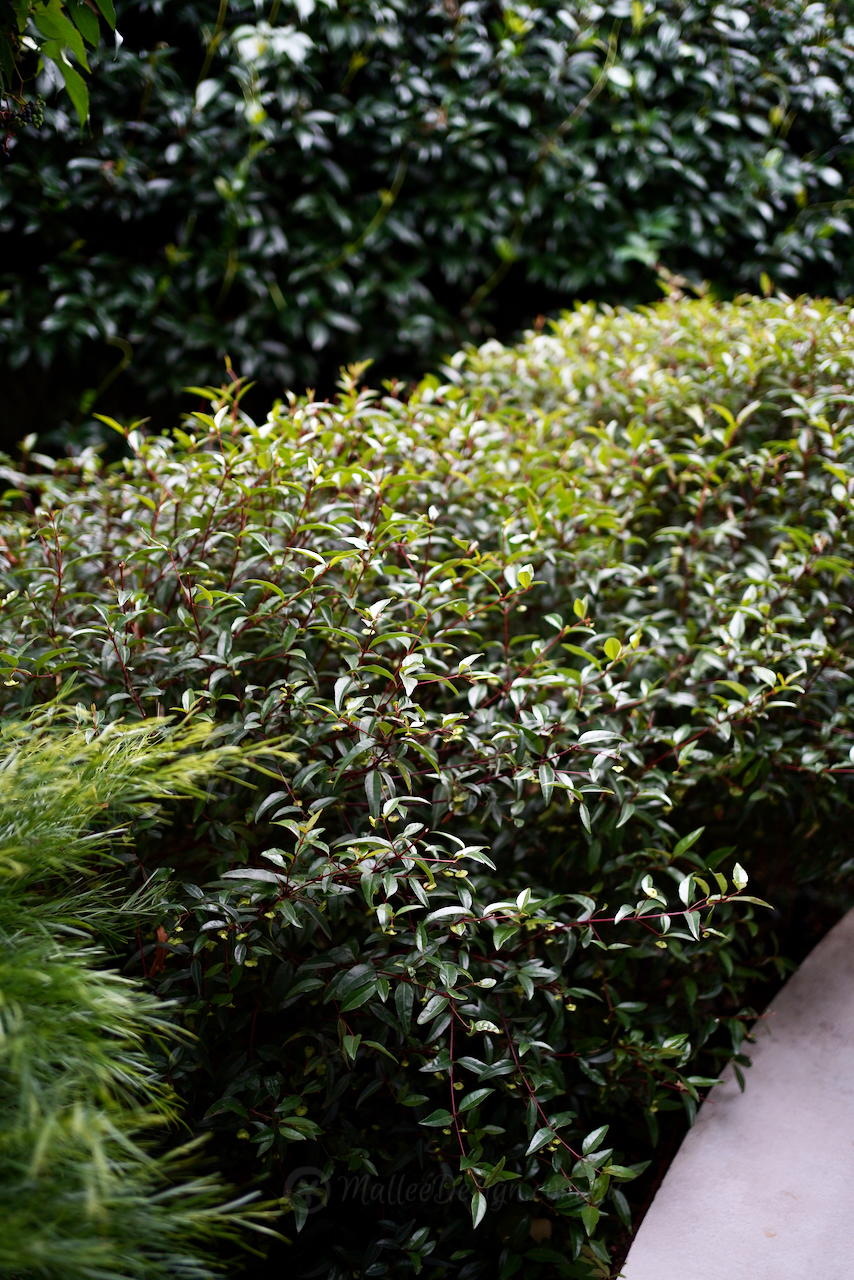
Correa baeuerlenii
Here is another of my very favourite Correas that is such a useful plant in the landscape. Correa baeuerlenii or Chef’s Hat Correa is found naturally growing on the south coast of NSW on shady, damp sites, therefore it grows happily under large trees and will cope with periods of dry and also light frost.
-
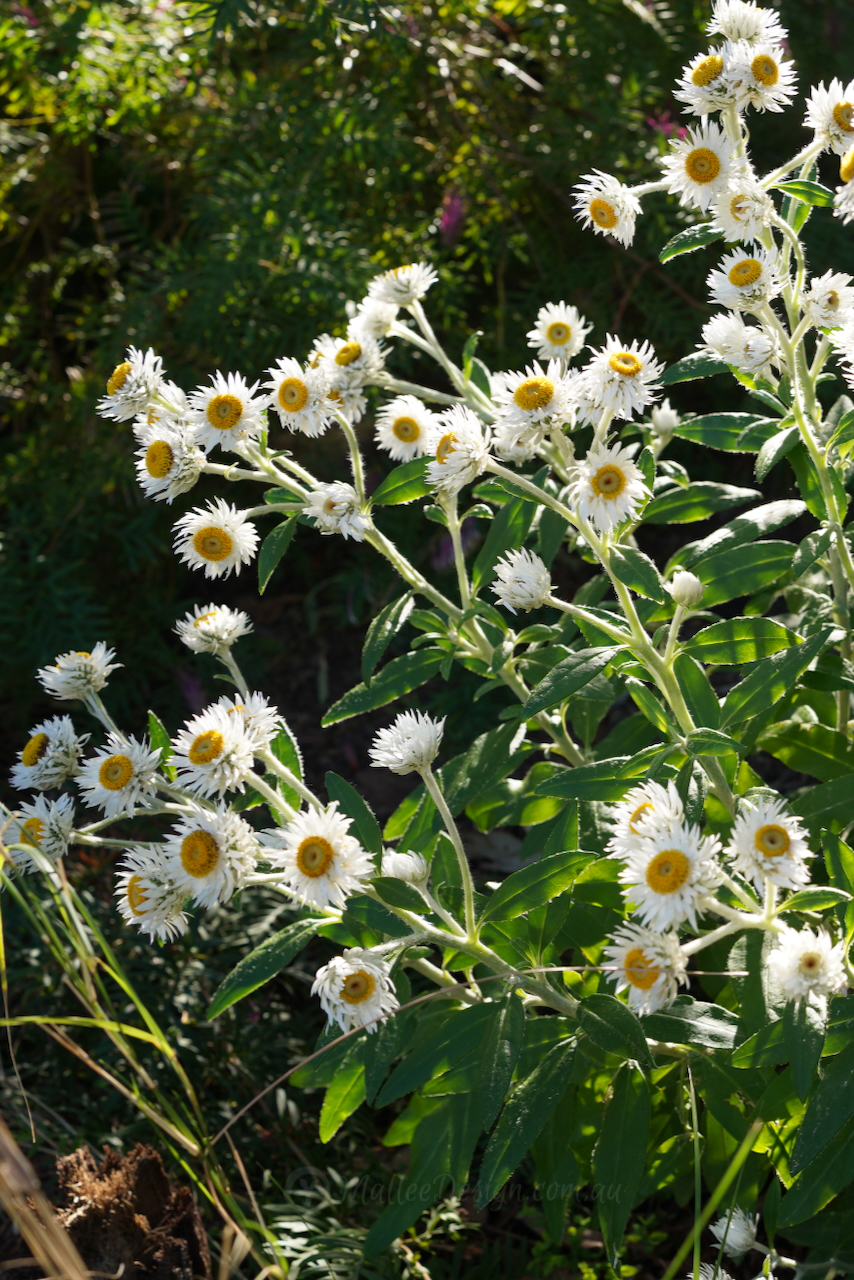
Coronidium elatum: The lesser Known paper daisy
This is a paper daisy which you may have seen growing in the bush, popping its flower heads up but often looking quite scraggly. Well the good news is this species of paper daisy makes a wonderful garden specimen. It responds so well to pruning, it can be shaped into a small shrub and will…
-
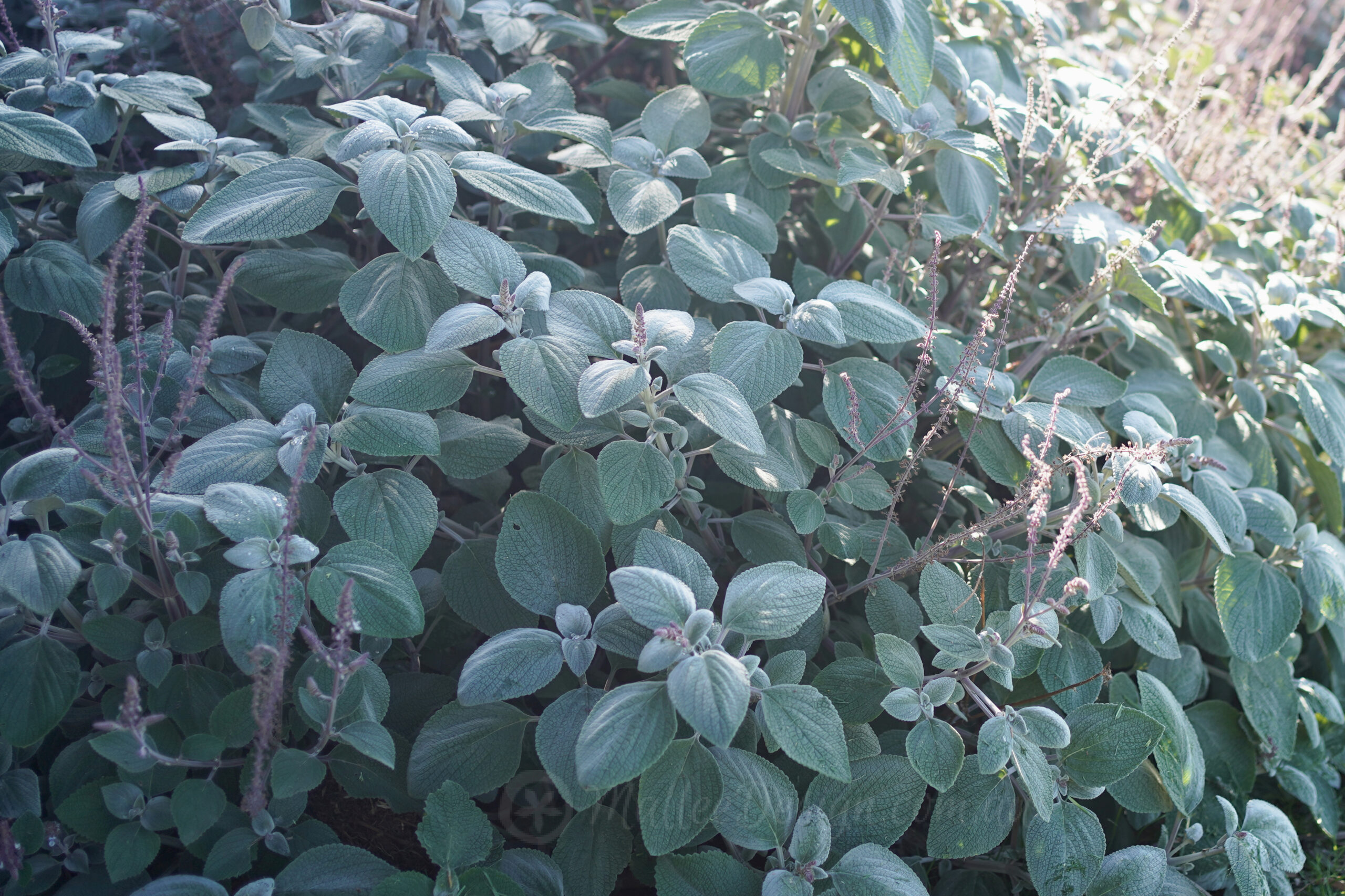
Silver in the Shade: Plectranthus argentatus
If you are looking for a native under story plant to grow where no plant has succeeded before give Plectranthus argentatus a try. It will grow in the dry soil under large trees and ramble about filling in bare patches creating a dense silver layer to a dark forgotten corner. Plectranthus argentatus has a lightly…
-
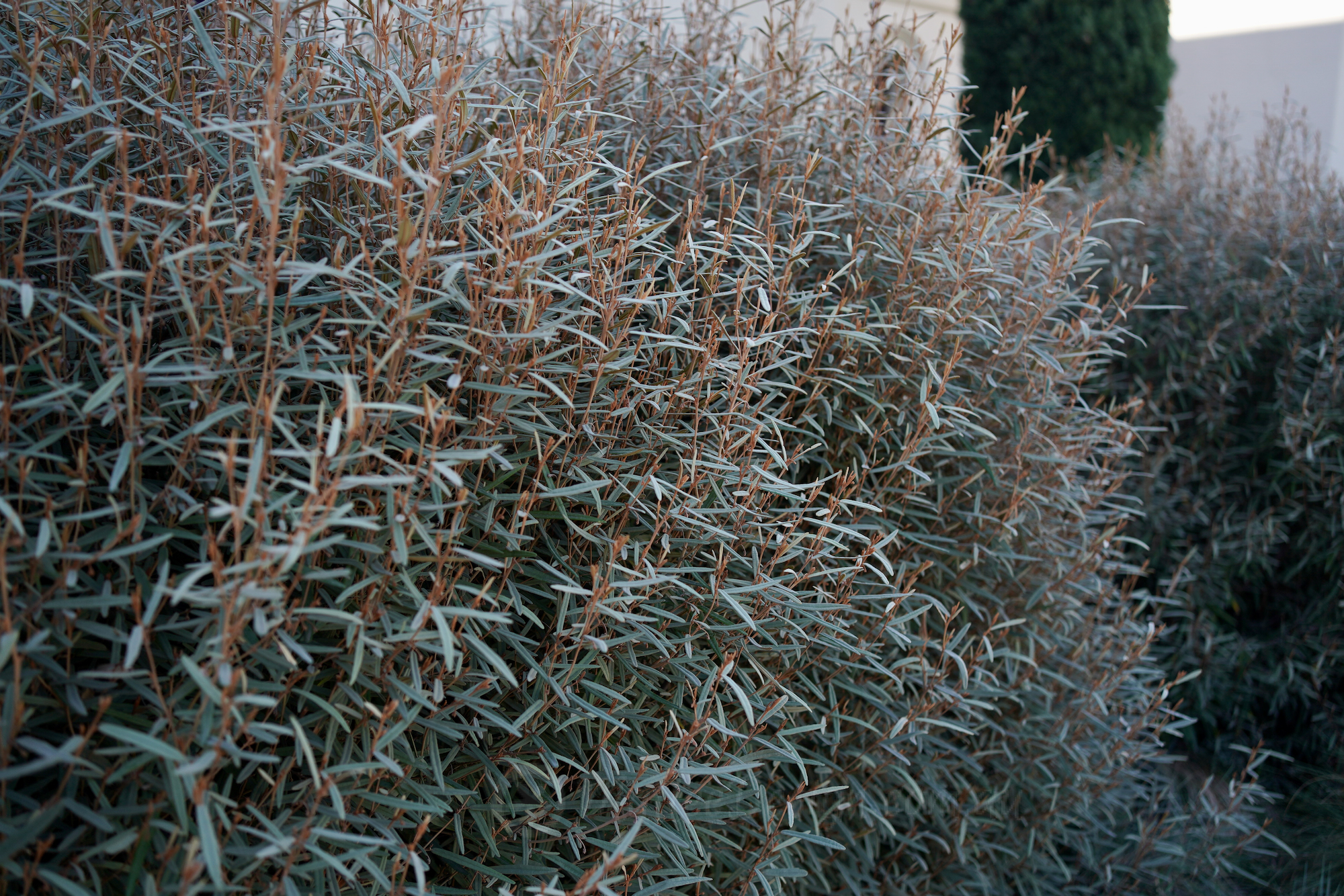
Another furry leaved beauty: Lasiopetalum baueri
This is commonly known as Slender Velvet Bush, which is a most apt description of this interesting under-storey shrub. Lasiopetalum baueri has rusty coloured , furry new growth and pretty delicate pink flowers in Winter. The dried flowers are long-lasting and have potential as a cut flower and the attractive foliage lasts for ages in…
-
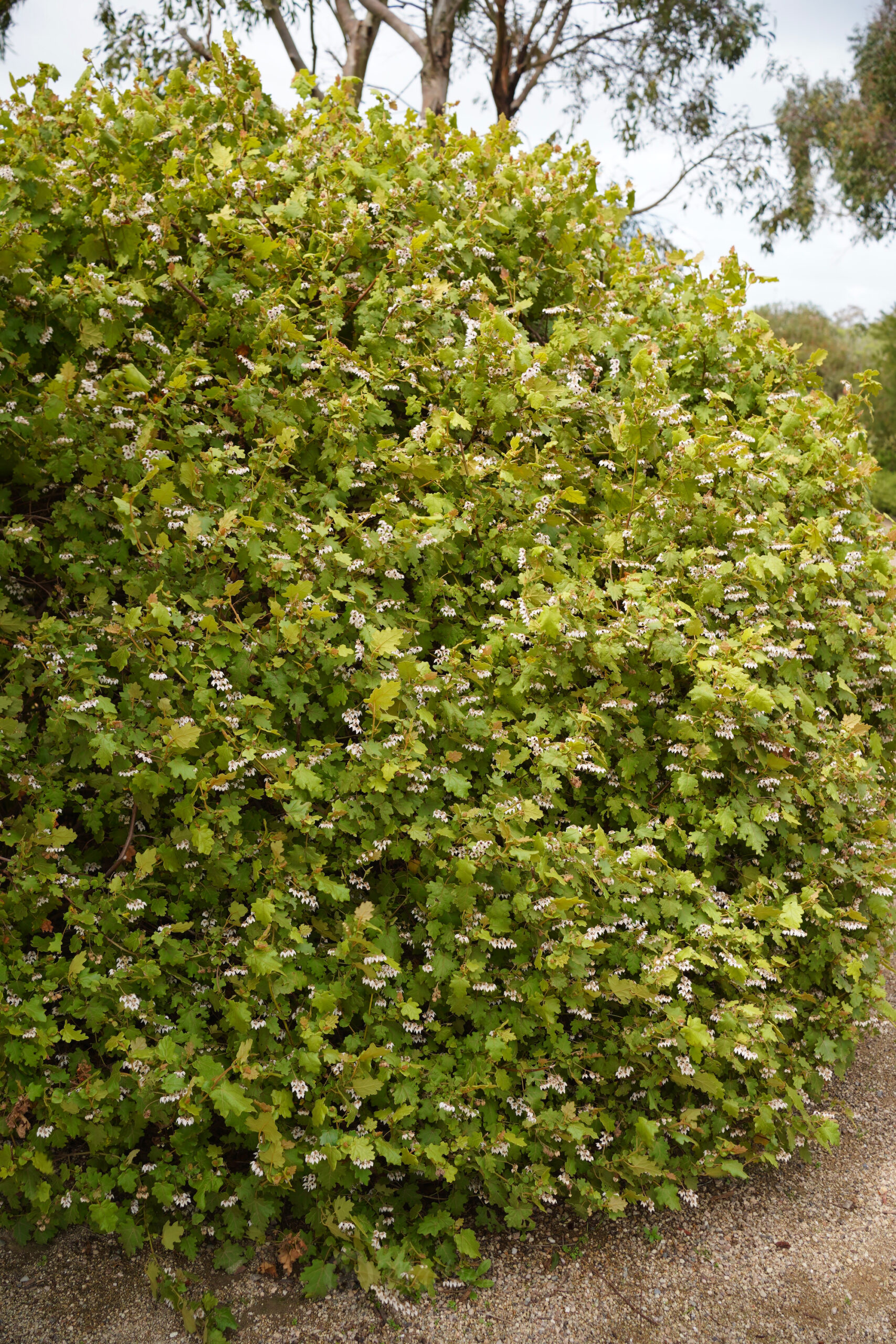
The limitless potential of Thomasia solanacea
I have written about this genus before but thought this species needs its own space on the blog as it really is an extremely versatile medium shrub. It is one of those plants for a trickier spot in the garden as it loves a dry shady position. It is endemic to south-west WA, it is…
-
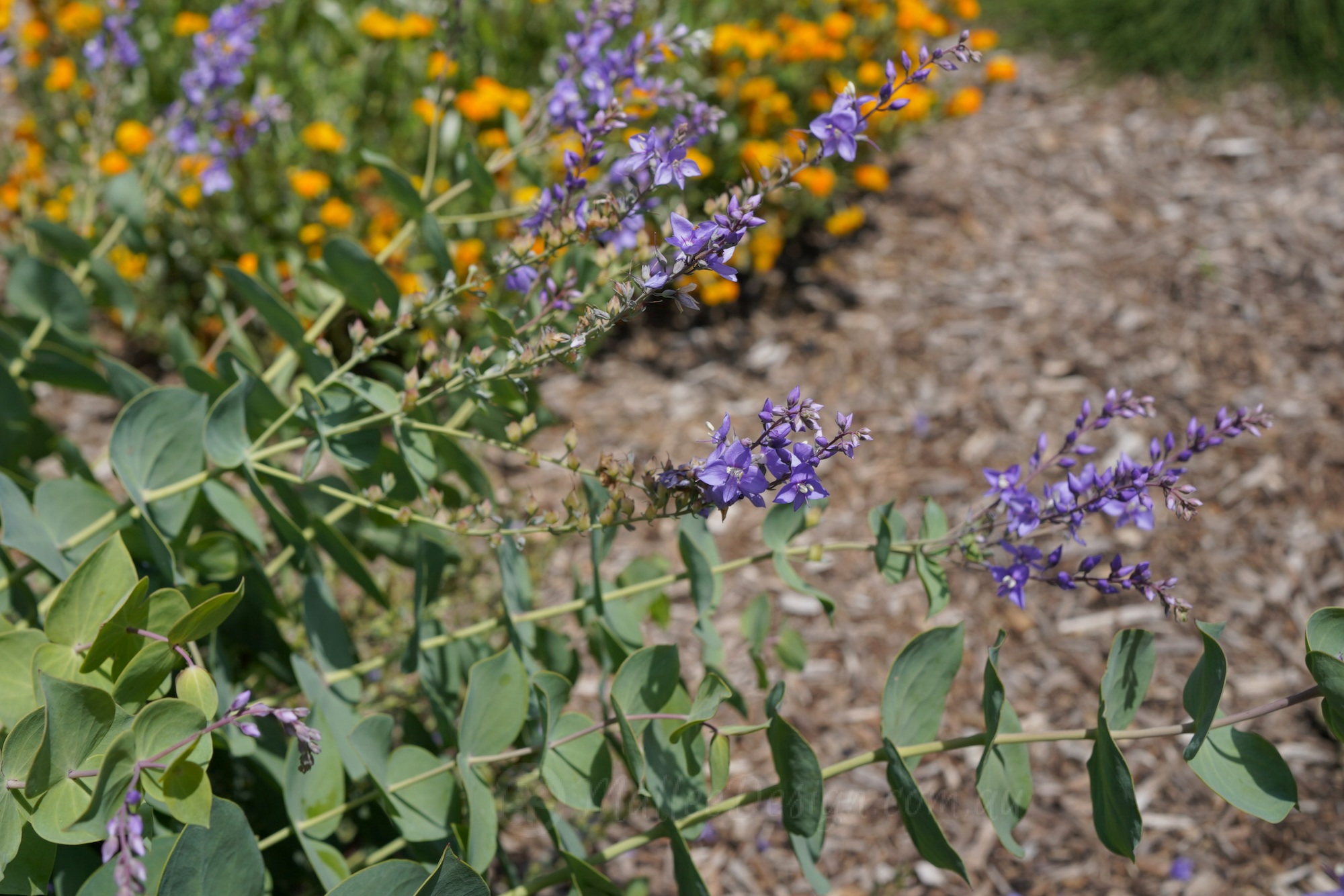
Lovely shrub of many names: Veronica perfoliata
This is to my knowledge currently Veronica perfoliata, it has gone through several differing identities and name changes, I won’t go into all of that, it just seems a shame as I think it may have detracted people from knowing about this useful plant. Firstly I love it because it has a very Eucalypt like foliage…
-
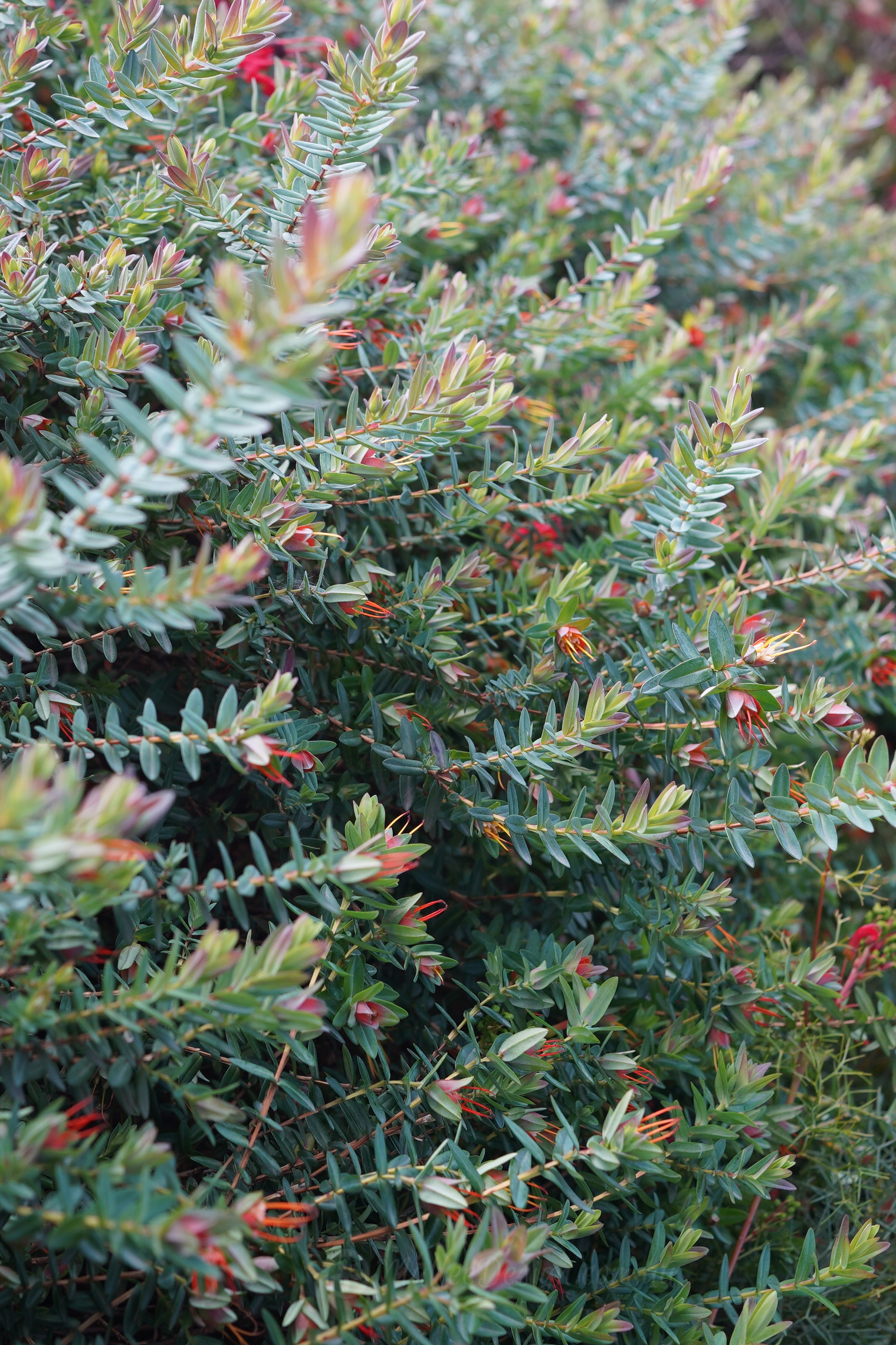
Darwinia citriodora another WA toughie
To be honest I didn’t realise this lovely medium shrub hailed from the West, silly me. I think I assumed Darwinias were local to coastal NSW due to the prominence of taxifolia and fascicularis when I go bushwalking close to home. They are a stunning Genus, all have intresting leaf structure and get covered in…
-
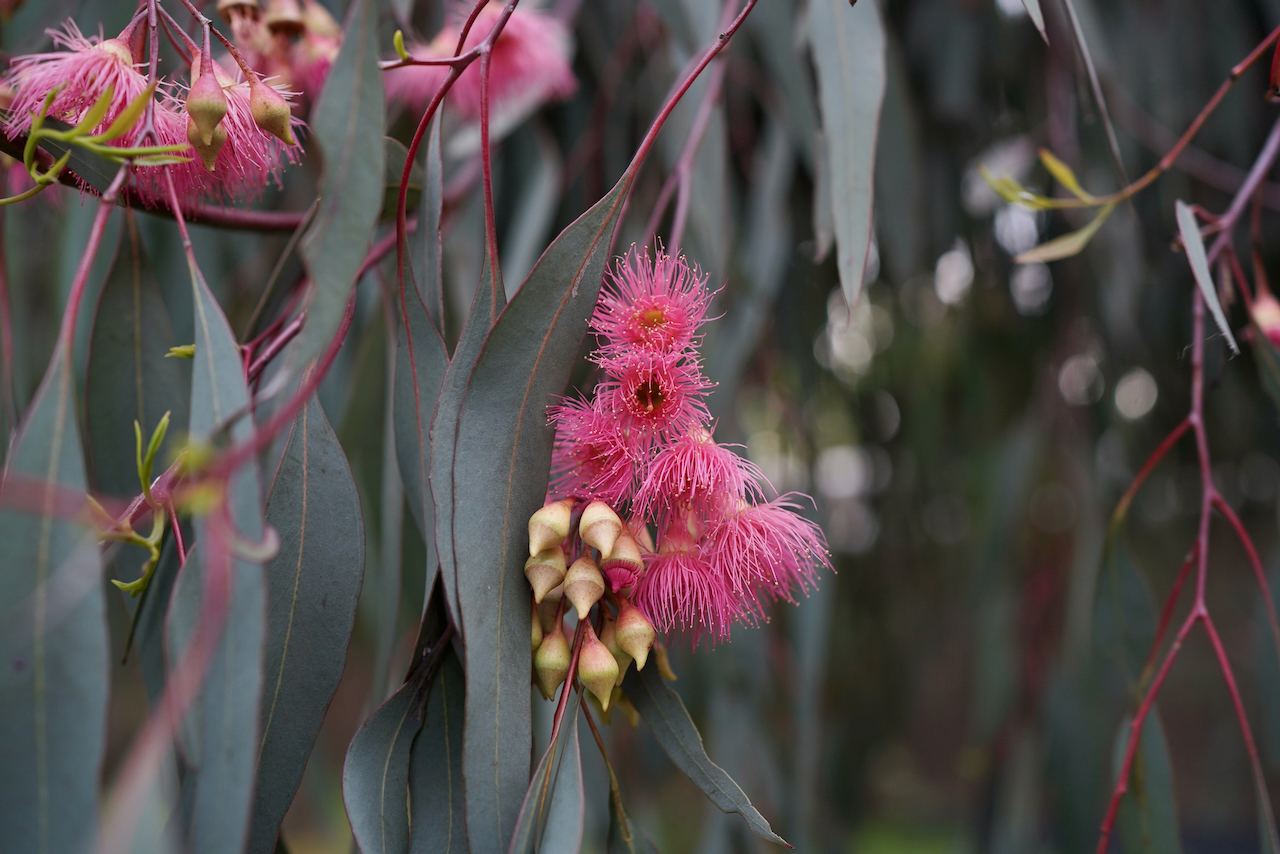
‘Red Iron Bark’ – Eucalyptus sideroxylon Rosea
I live in Iron Bark territory, on a clay soil, near the coast, the local Iron Barks stand up to the strong coastal winds and often boggy soil. One introduced Iron bark that does very well in my area is Eucalyptus sideroxylon Rosea, this is a stunning medium sized tree, that I gladly recommend for…
-

don’t be confused by Grevillea buxifolia
This is probably Grevillea buxifolia subsp. buxifolia which is not to be confused with Grevillea sphacelata, in the Grevillea bibles by Peter Olde and Neil Marriott sphacelata a “Related or confusing species”. This couldn’t be more apt, I spent some time going down a plant nerd rabbit hole on this. These photos were taken in…
-
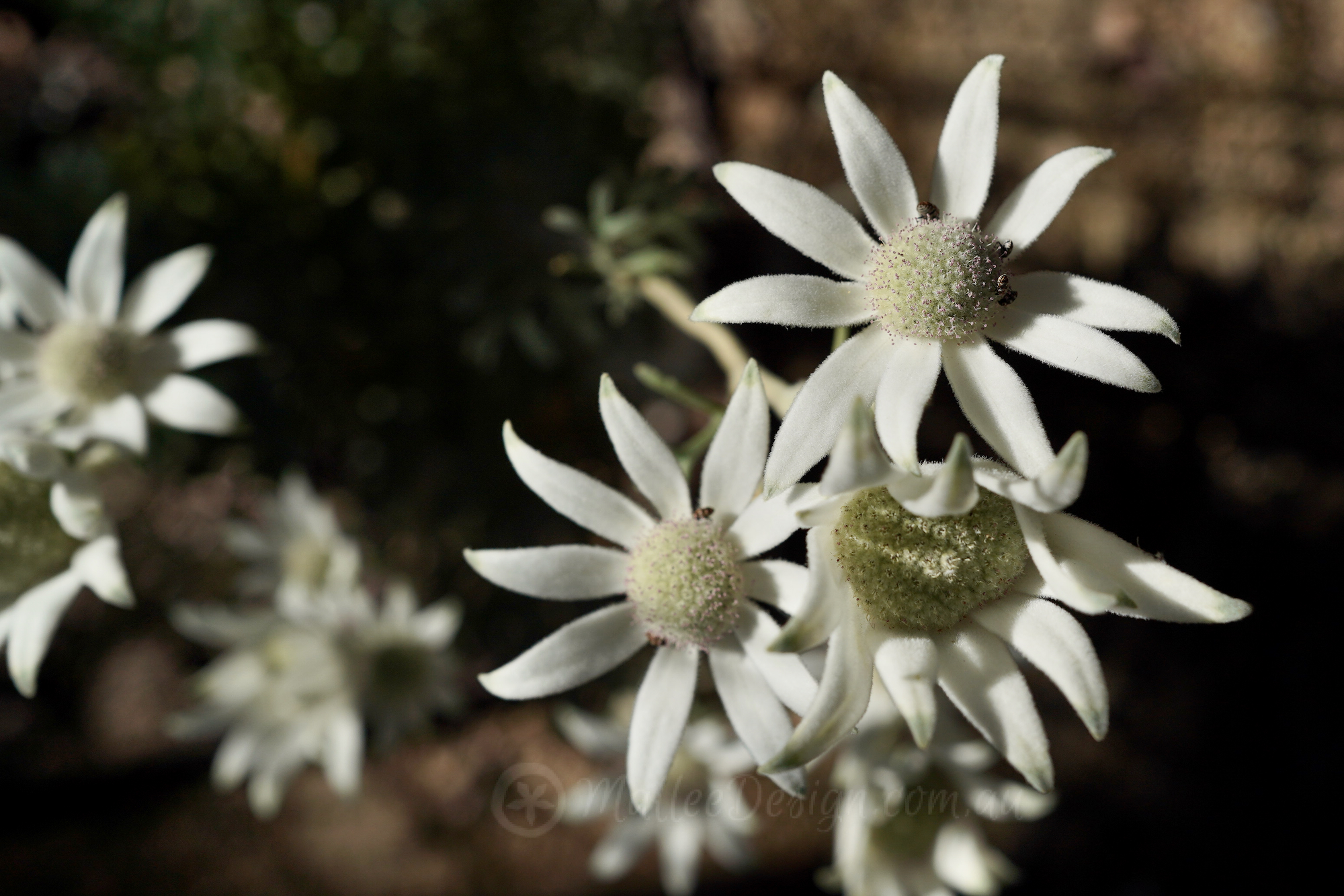
Tough as nails: Actinotus helianthi
I’ve learnt my lesson, plant them and leave them alone! I planted 5 potted Actinotus helianthi last year in my garden, 1 remains, the others were over loved and over watered I think, or there may have been some trampling going on courtesy of kids playing on the swing. Actinotus helianthi are wildflowers, it can…
-
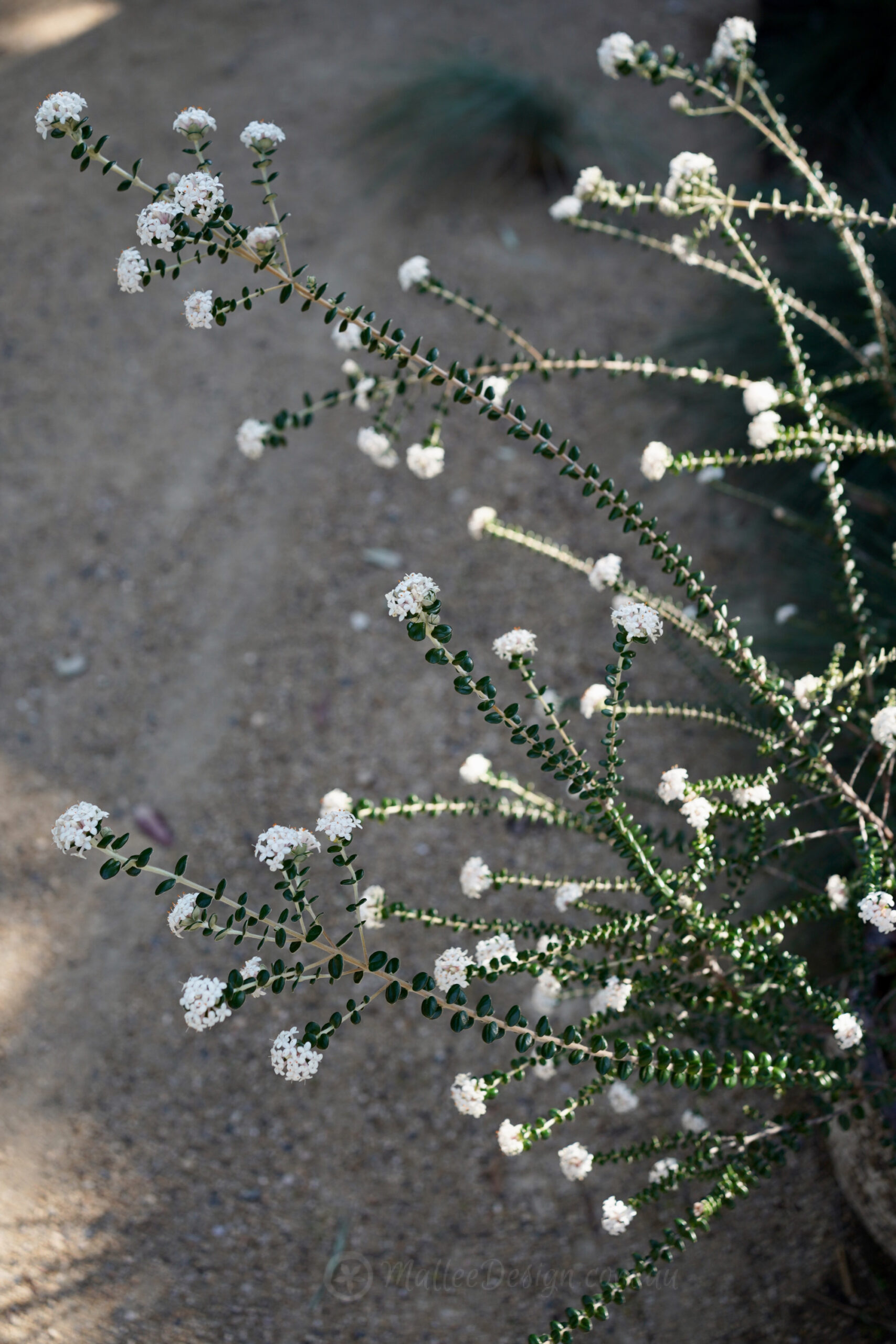
Pimelea nivea: A shrub of contrasts
Pimeleas are wonderful species, they grow quickly and flower often, for long periods of time. However this particular Pimelea is my favourite of all time, forever. This is Pimelea nivea and hails from my home state of Tasmania, I have seen it growing on rocky headlands and gravely Eucalyptus under storey and it is a very…
-
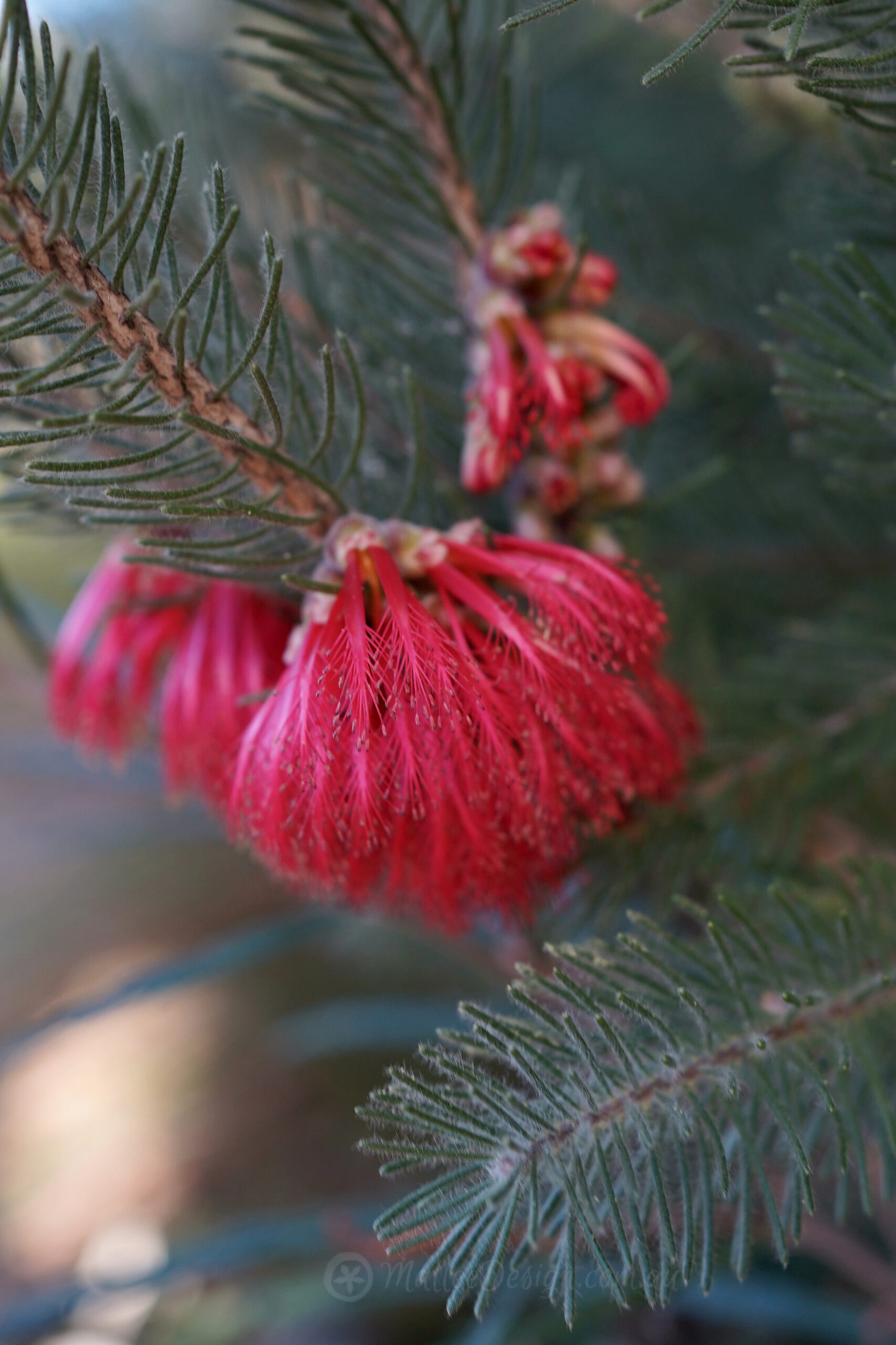
Calothamnus quadrifidus grey: texture and toughness
I thought I had already dedicated a blog post to this steadfast native shrub but have just realised it has featured a few times but hasn’t been praised individually yet. Very strange as this is a staple in many of my screening plantings or used as a feature shrub, especially as it will quite happily…
-
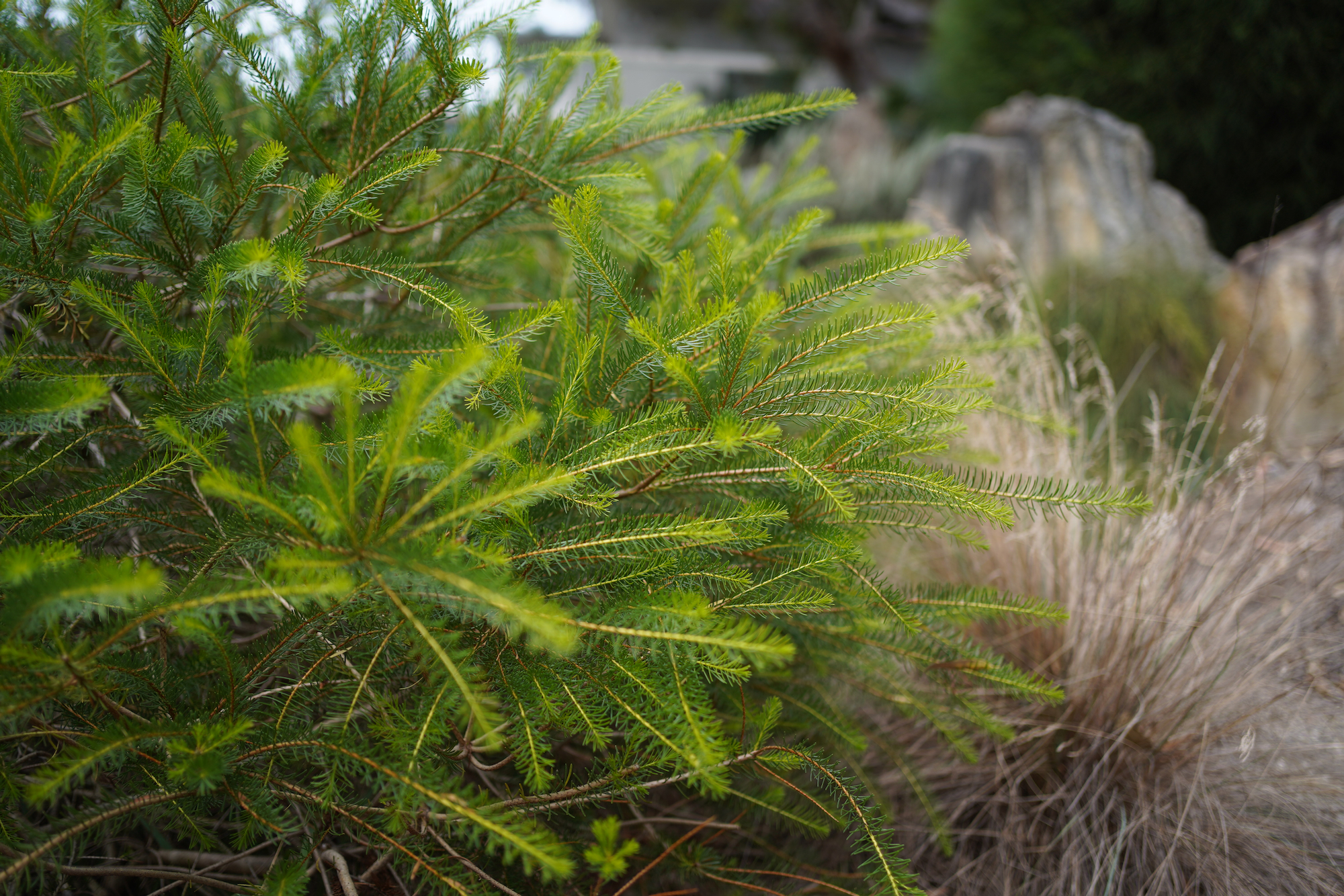
Calothamnus quadrifidus yellow : The younger sibling
This is the lesser known One sided bottlebrush, the sibling in the shadows if you will, of the very showy Calothamnus quadrifidus ‘Grey’. I love both of course, and I think this green leaf form of Calothamnus deserves to be utilised a lot more in the garden. Calothamnus quadrifidus ‘Yellow’ is a very hardy medium…
-
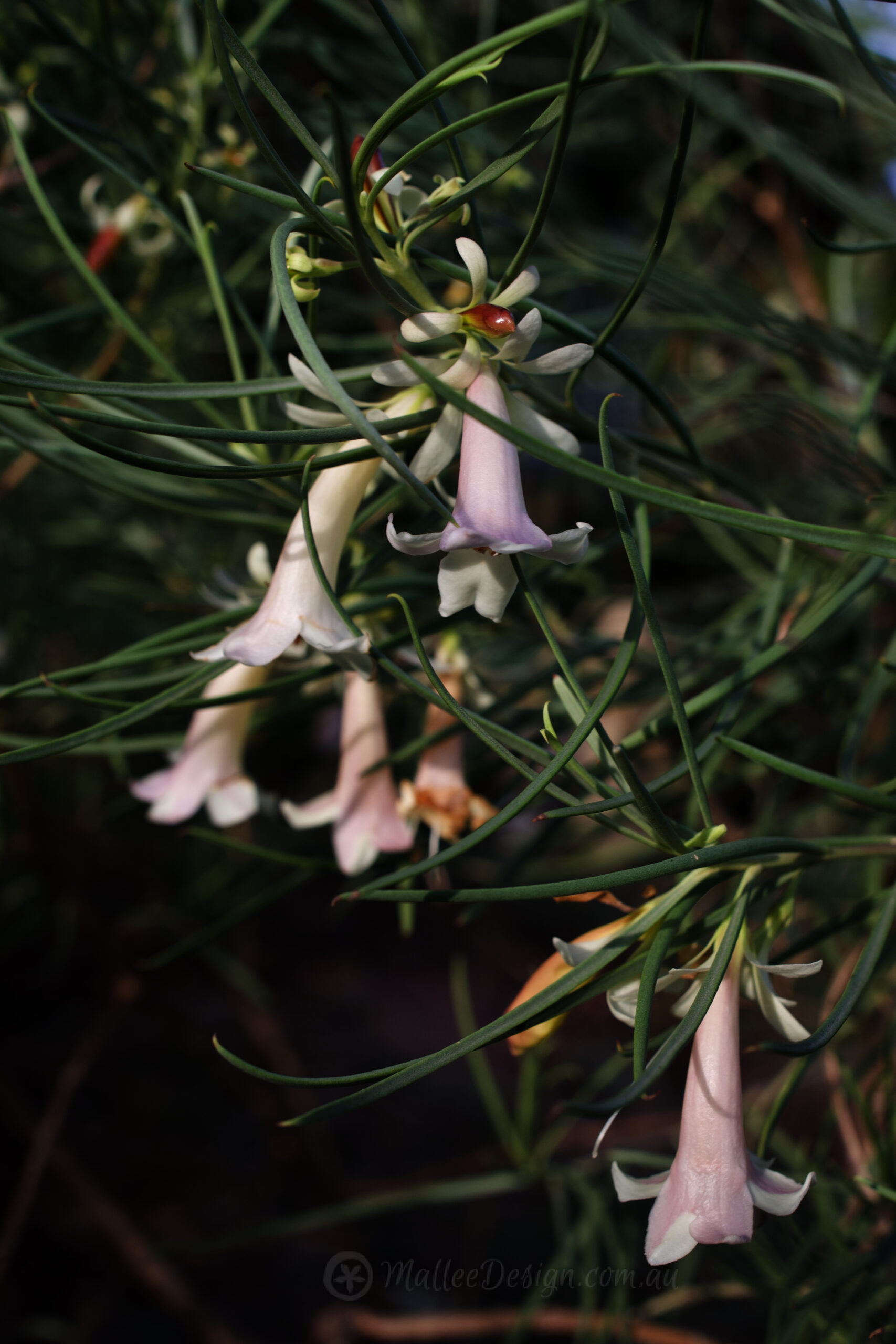
The multifaceted Eremophila oppositifolia
Eremophila oppositifolia is very deceiving , it appears delicate and a little fussy but in actual fact it is one of the hardiest native shrubs around. Most Eremophila or Emu bush grow naturally in Western and Southern Australia and although they come from area with a Mediterranean climate many of them are quite adaptable in…
-
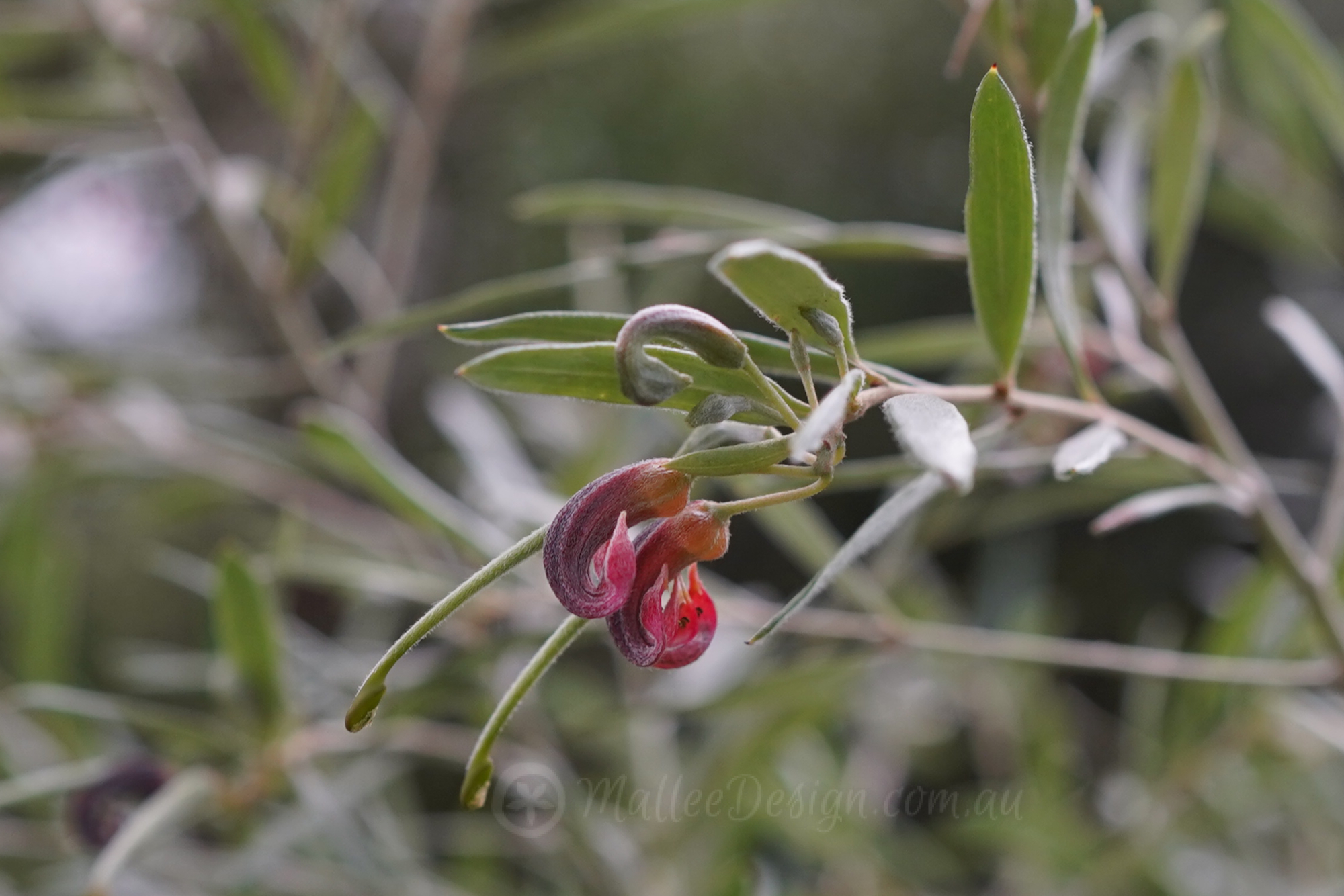
Outstanding: Grevillea arenaria
This is an outstanding plant for attracting birds, providing nesting habitat, shelter and nectar for honeyeaters and insectivorous birds. George Adams ‘Birdscaping Australian Gardens’ Thanks George I couldn’t have said it any better! I love my copy of the above book and use it all the time, I also love Grevillea arenaria or the Nepean…
-
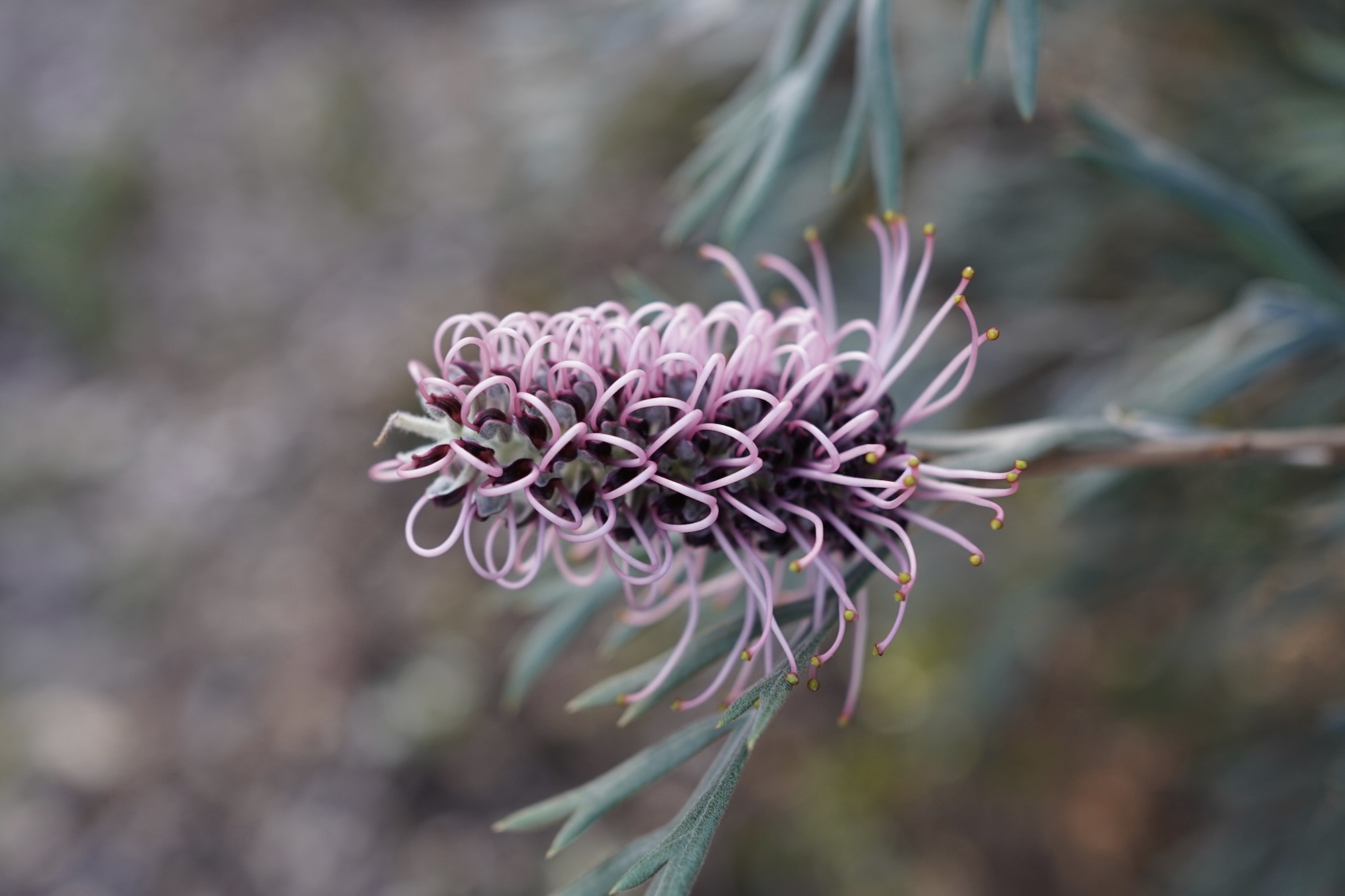
The Invaluable Grevillea ‘Dorothy gordon’
I struggle a little with some of the Large flowering Grevilleas, they tend to attract the more aggressive nectar feeding birds like Rainbow Lorikeets and Noisy Miners. These birds then tend to dominate the garden scaring away the smaller more timid birds. However I do make an exception for a hand full of large flowering…
-
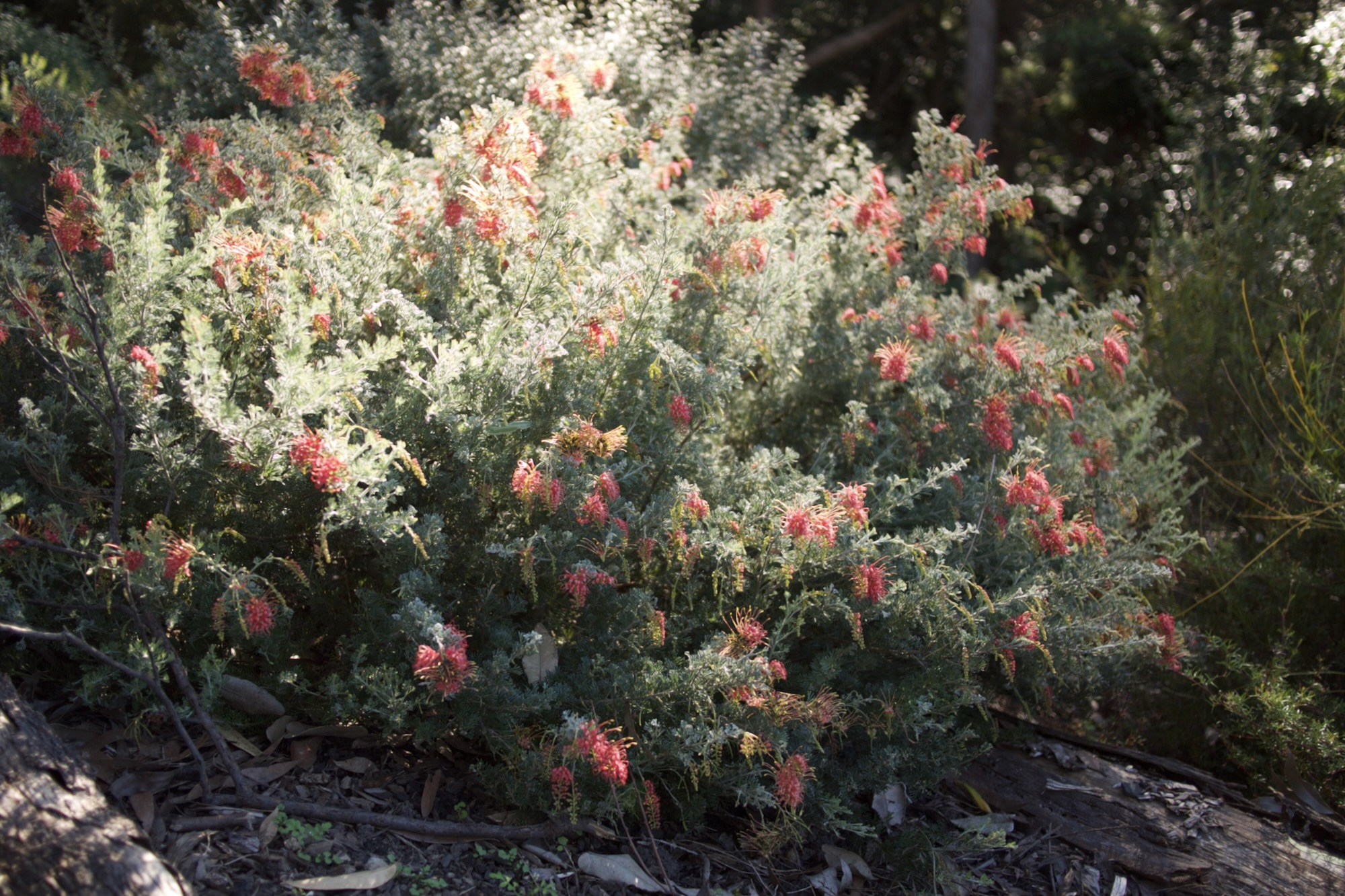
Soft and Foamy Grevillea’Seaspray’
Generally I am drawn to plants which are tactile and gentle, whether that be a weeping habit, furry leaf or light breezy foliage. By nature many of our Australian native plants have a grey or silver leaf, which helps them withstand extreme heat or salty sea air, this type of leaf I love as it…
-
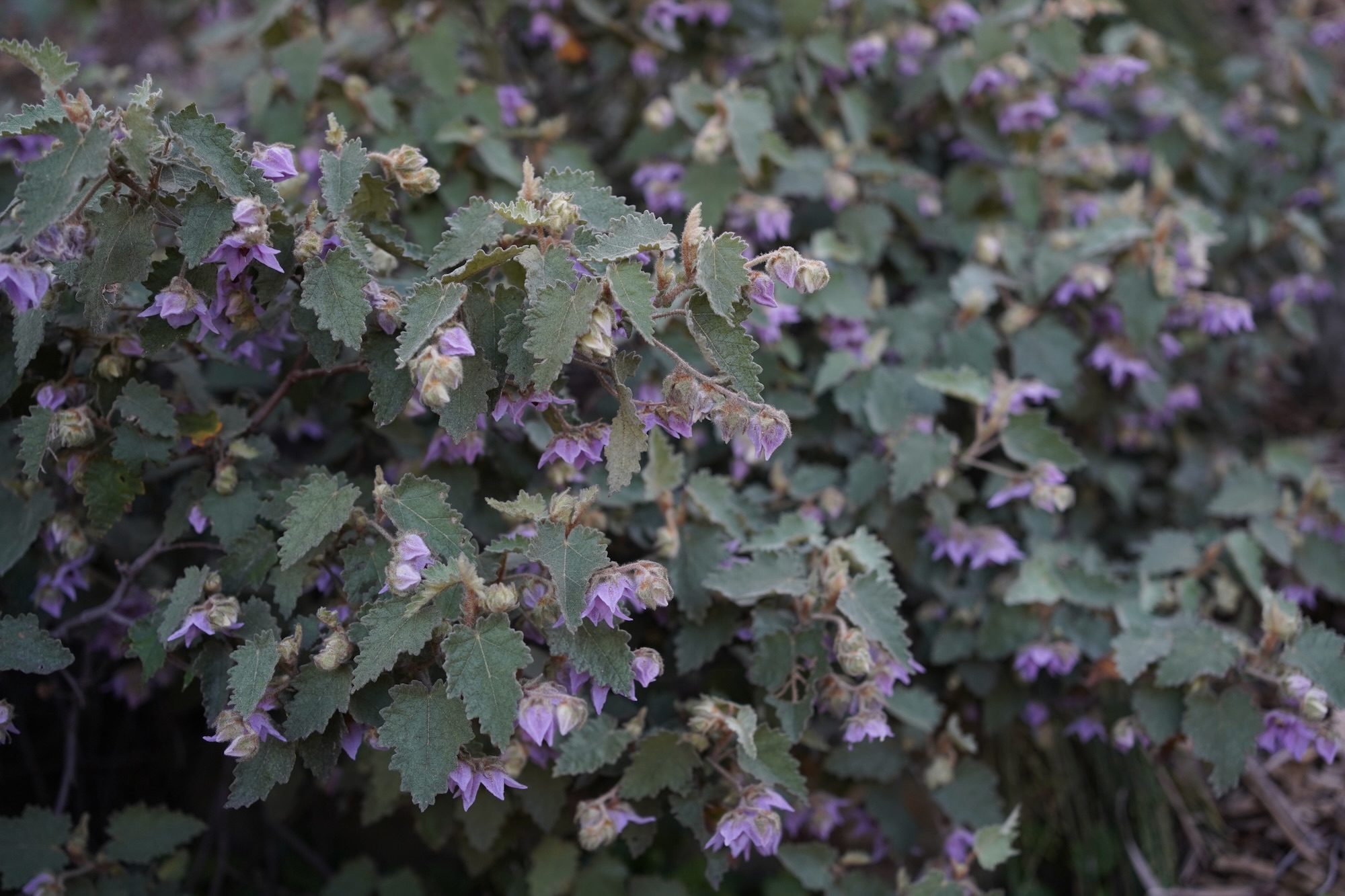
Two top Thomasias: Thomasia macrocarpa and Thomasia solanacea
Thomasia is a native shrub species which can be found largely in the south of Western Australia, like many of the species located in that area of Australia it is quite adaptable. For some reason all of this genus is endowed with showy, textured foliage like few other native species, making them a wonderful edition…
-
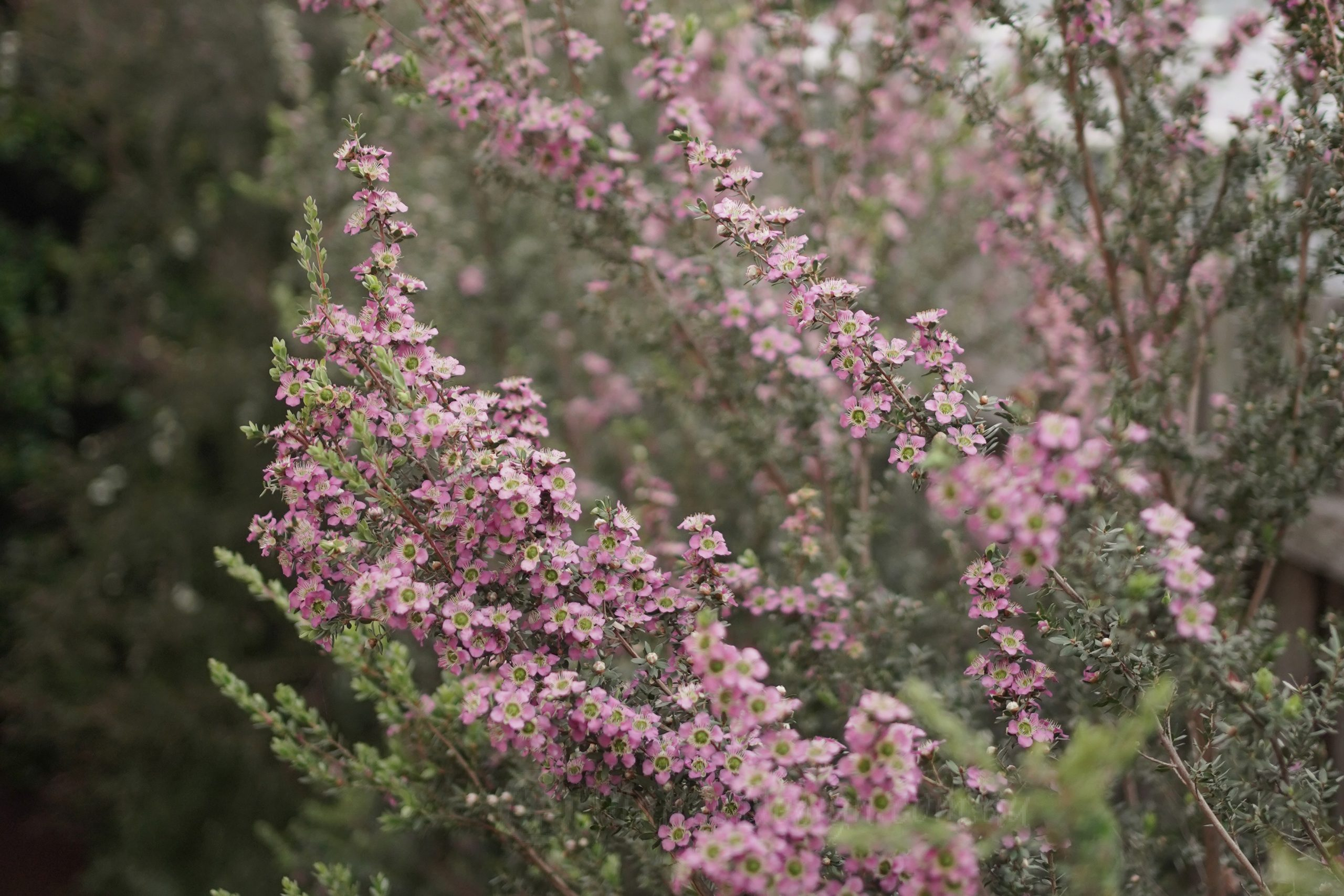
Privacy with punch: Leptospermum lanigerum ‘Seclusion’
Please meet Leptospermum ‘Seclusion’ which I am finding to be an outstanding native screening plant, originally I admit to buying it for its intriguing cultivar name ‘Seclusion’, who doesn’t want that in their garden right? It also has a classic favourite colour combination of mine which is grey leaves with pink flowers, and what a…
-
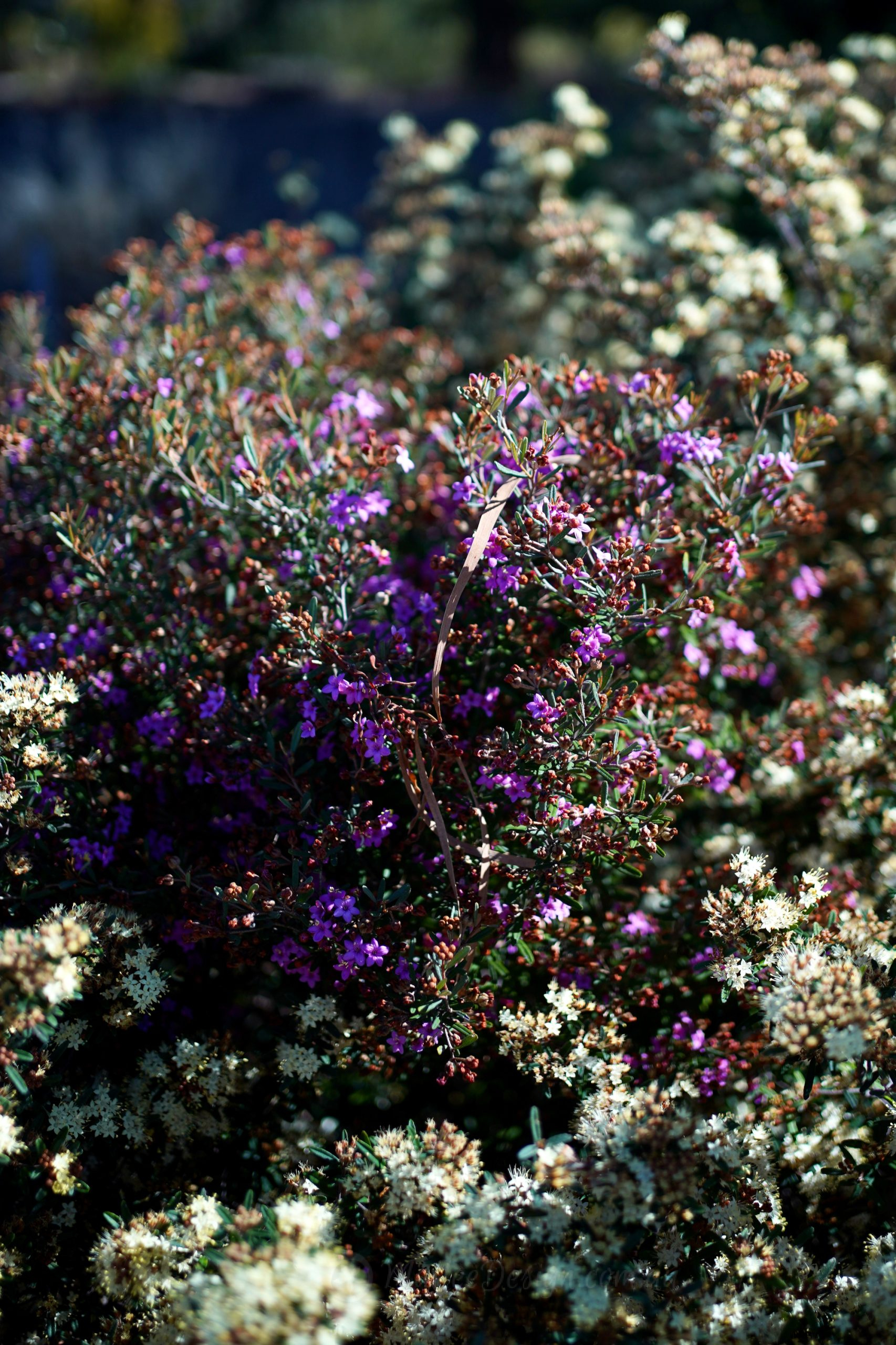
Phenomenal Phebaliums: the delicate blooms of Phebalium nottii and squamulosum
I am a long time fan of the Phebalium genus, these small to large shrubs which belong in the Rutaceae family can be found growing over much of the south and east coast of Australia. However Phebalium squamulosum is an extremely variable species which means it contains a number of forms and subspecies. So I must…
Tag: foliage contrast


